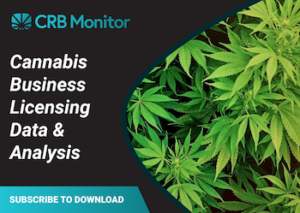Georgia is preparing to roll out its first batch of licenses that allow existing pharmacies to dispense low-THC products to medical cannabis patients, but it remains unclear how dispensing a federally illegal product could affect those pharmacies’ federal licenses.
“It’s a drug. It should be treated as a drug, and it should be dispensed by pharmacists. Our license is literally bound to dispense medications,” said Ira Katz, owner of Little Five Points Pharmacy in Atlanta.
Georgia is the first state in the nation to allow licensed pharmacies to serve medical cannabis patients. The Georgia legislature legalized the possession of medical cannabis in 2015, but it was not until 2020 that the state passed a law allowing for the creation of a legal medical market. Along with creating the state’s first cultivation and dispensary licenses, it also included a license type for existing pharmacies that would be overseen by the Georgia Board of Pharmacy.
Katz is hoping to become one of at least 100 pharmacists licensed to dispense medical cannabis. But there remains an unanswered question about how dispensing cannabis might interfere with other federal requirements for pharmacies.
“Quite honestly, a lot of my independent pharmacy owner colleagues are struggling with that as well,” said Katz, a member of the Georgia Pharmacy Association. “Some of my colleagues are leery of the fact that it’s still Schedule I. So it could potentially have an impact on some of the contracts that they have with pharmacy benefit managers and insurance companies.”
Georgia’s medical cannabis law allows for the production of low-THC cannabis products that contain less than 5% of THC. The state also limits the types of cannabis products that can be dispensed to oils, tinctures and edibles. Flower, pre-rolls and vapes are not permitted.
“We didn’t want Georgia to become like Colorado or California, we consider this to be a drug. But we feel medical cannabis could help a lot of our patients, and we want to be able to monitor usage,” said Katz. “I have patients that come in that are on cancer treatments. I have patients who are on anti-anxiety drugs or have seizure disorders. I want to be able to have that one-on-one with my patients and work with them and find the best way that I could possibly reduce some of the other medications with the use of medical cannabis.”
Botanical Sciences and Trulieve were the first two companies authorized to produce medical cannabis products in the state.
That total recently jumped to six after the Georgia Access to Medical Cannabis Commissions, which oversees the state’s medical cannabis industry, approved four new cultivation licenses on Nov. 15 for Fine Fettle, TheraTrue, Nature’s GA and Treevana Wellness. Each of these new licenses allow for 50,000 square feet of canopy.
Georgia has over 400 independent pharmacies across the state, according to the American Pharmacists Association, and at least a third of them have reportedly applied for a cannabis license since the application window opened in October.
Non-independent pharmacies, such as CVS and Walgreens, along with pharmacies in grocery stores, such as Publix and Krogers, are technically eligible for cannabis dispensary licenses, but those national chains are reluctant to get involved while cannabis remains a Schedule 1 drug on the federal level, according to Katz.
“If they’re dispensing delta-9 THC, then yeah, they’re jeopardizing their DEA registration,” said Shane Pennington, an attorney with Porter Wright who specializes in cases involving the DEA. “What they’re doing is they’re literally trafficking in a Schedule I controlled substance. That’s extraordinarily unusual.”
Pennington speculated that the DEA could possibly overlook Georgia pharmacies in the short term, simply because the agency is not in the habit of checking licensed pharmacies for cannabis distribution. More often than not, the DEA’s scrutiny of pharmacies focuses on the rate at which opioids are dispensed.
Pharmacies require a DEA license to dispense controlled substances such as opioids. If the DEA were to decide to visit a Georgia pharmacy for inspection and that pharmacy is doling out cannabis products, there is a possibility that the establishment’s DEA licenses could be suspended or revoked.
Katz said that he and his fellow pharmacists in Georgia are aware of the possible risk.
“In a month from now, or three months from now, or six months from now, somebody from the DEA could come into my pharmacy and say, ‘I see you’re dispensing medical cannabis, and you’re not allowed to do that,’ ” he said. “Now, could they shut me down? Could they arrest me? Could they fine me or all of the above? That remains to be seen. We just don’t know. All I can say is if that does happen, I’d be all over the news.”













